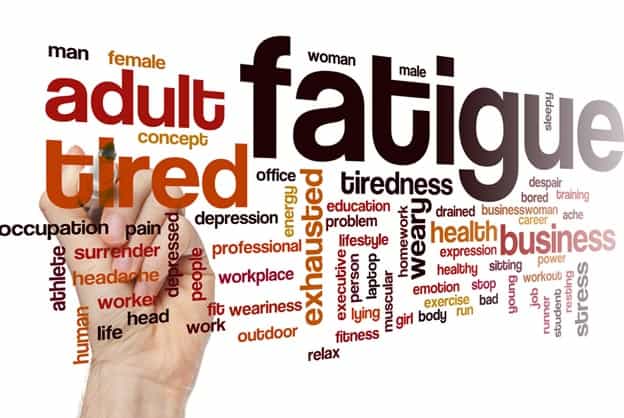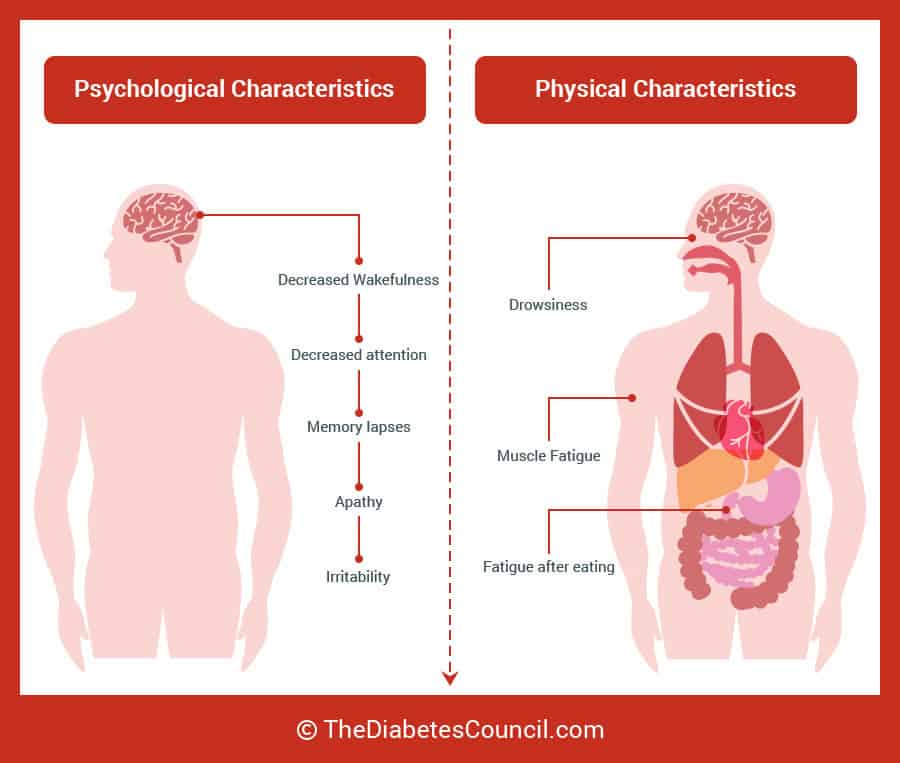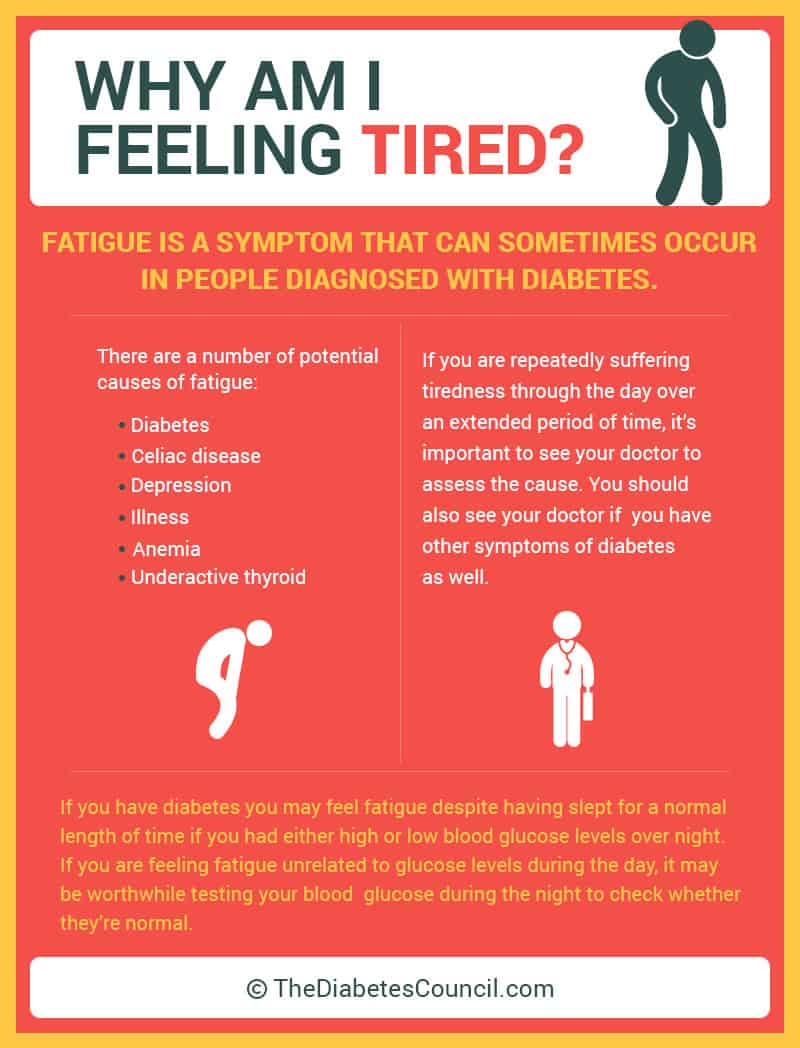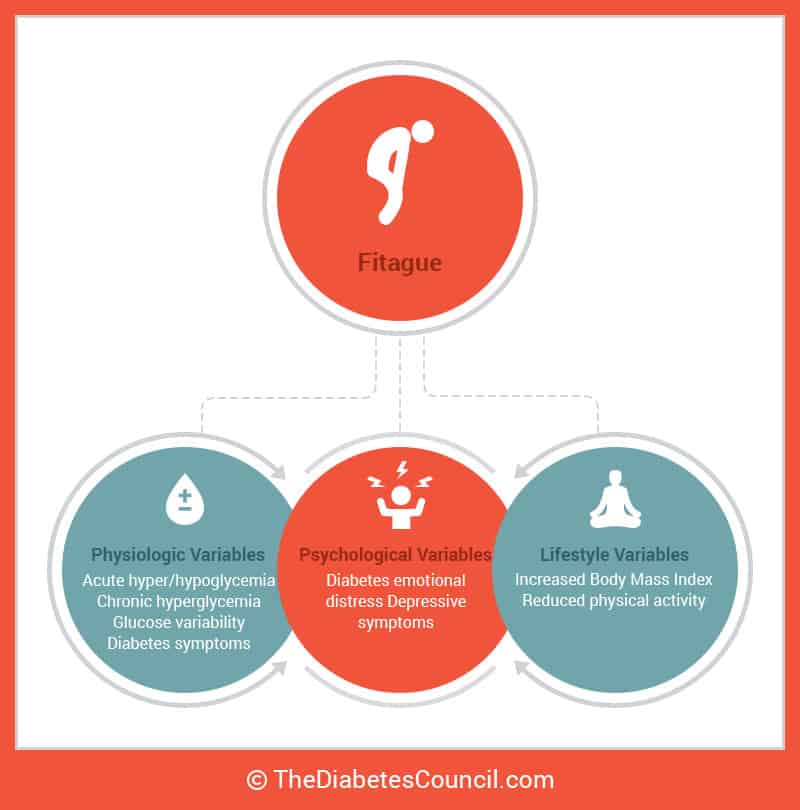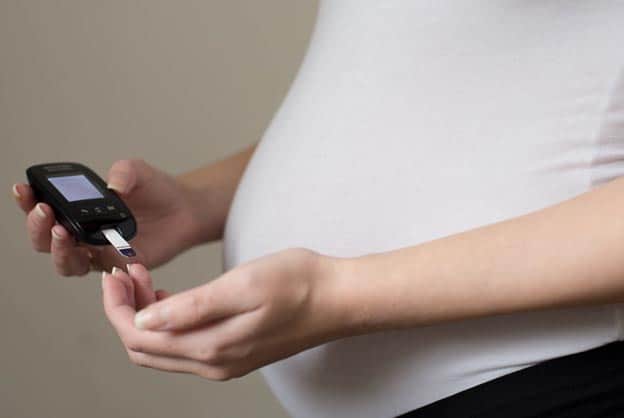What exactly is fatigue? Is it just being tired after working a long week or not getting enough sleep? The answer is no. Fatigue is excessive tiredness that makes carrying out simple tasks difficult and interferes with one or more life functions. Sounds terrible, doesn’t it? Well imagine having a chronic illness along with the fatigue.
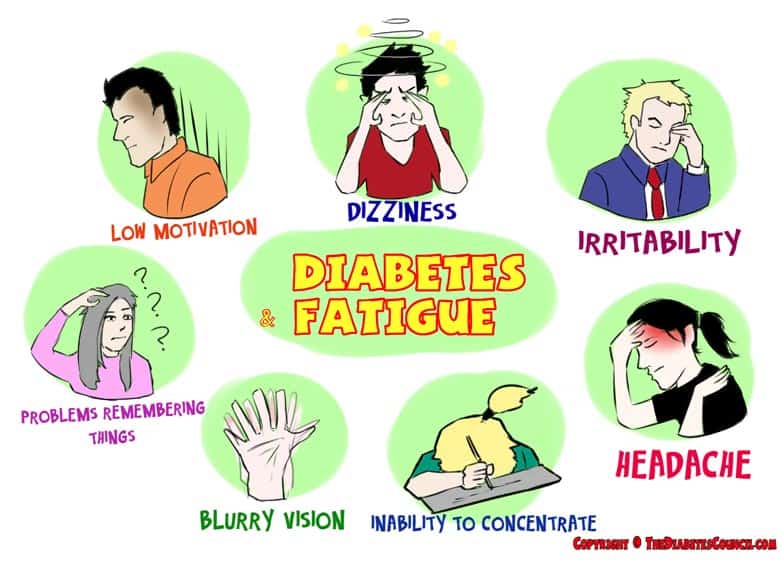
Diabetes and fatigue have a strong relationship, and it can make a person’s life very difficult. The following article will discuss the relationship, along with ways to beat and reduce the risk of living with diabetes and fatigue.
Contents
What is diabetes fatigue?
As it was mentioned above, diabetes fatigue is an extreme tiredness that individuals with diabetes can experience. It is a tiredness that disrupts a person’s life and makes it difficult to function. It is very common, and studies have shown that 85% of those with diabetes experience fatigue.
Some signs of fatigue include:
- Dizziness
- Irritability
- Headache
- Inability to concentrate
- Problems remembering things
- https://www.thediabetescouncil.com/blurred-vision-an-important-sign-of-diabetes/Blurry vision
- Slowed reflexes and muscle weakness
- Low motivation (learn how to stay motivated with diabetes)
Is feeling fatigue a sign/symptom of diabetes?
Feeling fatigued is definitely a symptom of diabetes. However, fatigue can also be a sign or symptom of many other diseases, so it is important that you talk to your doctor about any problems that you are having.
Reactive hypoglycemia, a term used to define the crash that a person gets after eating a lot of sugar and carbs, can be an early sign of diabetes. In order for the body to use the sugars and carbs that are consumed for fuel, each molecule must be paired with insulin to get into the cell. If there isn’t enough insulin available, then the sugar molecules stay in the bloodstream and cause high blood sugar.
What happens is that over time, eating a lot of sugar and carbs causes your body to have to produce a lot of insulin. Eventually, you develop insulin resistance and the insulin stops working as well which causes your body to make even more to keep the blood sugar under control. So after eating a large meal of sugar and carbs, the body starts producing a lot of insulin to try to use the food for energy. The problem is that after the food is digested, there is still insulin floating around and it causes the sugar to drop.
Signs of reactive hypoglycemia are:
- Difficulty concentration
- Fatigue
- Weakness
- Dizziness
- Palpitations
If you develop these symptoms after eating, you should schedule an appointment with your physician to check for possible diabetes or pre-diabetes.
Another reason that fatigue is a sign of diabetes is because of high blood sugar. This will be discussed in more depth later in this article, but there is a link between fatigue and hyperglycemia (high blood sugar levels). 61% of newly diagnosed people with Type 2 diabetes experience fatigue. Once again, if fatigue is a problem, scheduling an appointment with your doctor is the best thing for you to do.
Why does having diabetes cause fatigue?
Having diabetes changes your blood. Imagine someone without diabetes having blood that flows like water. Now imagine someone with diabetes having blood that flows like maple syrup. When the blood flows much thicker and slower, like syrup, it is harder for cells to flow through the bloodstream to provide energy and oxygen to parts of the body, including the brain.
Diabetes also causes inflammation, which sends messages to the brain that the body needs to take a rest in order to heal. When this happens, fatigue is going to be a problem.
One of the biggest reasons that diabetes causes fatigue is because of its complications. Organs such as the kidneys, eyes, heart, and the nerves can all be damaged because of diabetes. End stage renal disease, which is when the kidneys fail, can lead to low red blood cells. Low red blood cells, which is also known as anemia, can lead to fatigue. Studies have shown that people with diabetic complications such as nerve damage, heart disease, and kidney problems have increased levels of fatigue. The next section of this article discussed more things that can cause fatigue.
What are the causes of fatigue?
Fatigue can be caused by many things. As mentioned earlier, anyone experiencing fatigue should schedule appointment with their physician to make sure that there is not something causing the fatigue that needs treatment. Some of these diseases are anemia, cancer, fibromyalgia, and celiac disease.
In regards to diabetes, fatigue can be caused by many things related to the disease. These include:
- Being overweight
- Sleep apnea
- Depression
- Decreased level of testosterone
- Low blood sugar levels
- Stress
- Anxiety
- Restless leg syndrome
- Neuropathy (nerve damage)
What are the effects of fatigue on diabetes?
When someone becomes fatigued, it can lead to a never ending cycle. First, because of the fatigue, they become tired and don’t want to do anything. That leads to lack of exercise and poor dietary choices. These choices make them depressed, which in turn makes the fatigue even worse. This cycle continues and eventually the person begins to have complications from diabetes because their blood sugars are not under control.
Fatigue can cause someone to lose motivation to take care of themselves. They stop checking their blood sugar like they should or do things for themselves that they know they should because they are just too tired. Insulin dosages are skipped or not given accurately because of the time and energy that it takes to do it correctly. It is very important for all individuals with fatigue to find a solution, but it is even more important for those people with diabetes because of the risk of complications due to non-compliance.
Why is diabetes fatigue so common?
Fatigue can be caused by something physical, emotional distress, or because of lifestyle choices. Previously in this article, a number of things related to diabetes that cause fatigue was listed. If you read over that list, you can find physical, emotional, and lifestyle choices in there. This means that individuals with diabetes are at a risk from developing fatigue because of many different reasons.
An example is someone with diabetes that eats a very healthy diet and exercises daily. If they are too stressed because of the struggle to control their blood sugar, they could develop fatigue. Another example is someone that is very calm and follows their insulin and diet plan perfectly, but they have restless leg syndrome because of the nerve damage caused by diabetes.
Having physical, emotional, and lifestyle risk factors makes it very difficult for people with diabetes to avoid fatigue. Many people experience multiple problems that cause fatigue, such as sleep apnea and anxiety. Dealing with both of these makes it even harder to overcome the fatigue. This is why it is the most common symptom of diabetes.
The image below shows how all three variables play into fatigue. It also shows that not only do they cause fatigue, but fatigue causes them as well.
How can I prevent from feeling tired all the time?
Preventing fatigue with diabetes is a pretty challenging thing to do. The first thing that needs to be done is a visit to see your physician to make sure that the causes of fatigue is not due to another issue. Other things that can be done are:
- Keep blood sugar levels in a normal range
- Make sure that you are getting enough sleep
- Take a power nap during the day if you are able
- Try to limit the stressors in your life
- Ask for help from others when it’s possible
Later in this article there is more information about how to reduce fatigue and regain energy. The main goal is to try to minimize complications from diabetes such as kidney disease and nerve damage because of the increase in the risk of fatigue that they bring.
The main goal is to regain a level of energy that allows you to function and manage your disease and your life. All people want a quality of life, and fatigue doesn’t allow that to happen.
Do blood sugar levels make a person with diabetes tired?
Blood sugar levels can definitely make someone tired. If blood sugar levels are too high or too low, the body is not able to operate 100% like it should and it can wear the body down. Also, having to chase blood sugar with insulin and battle to keep it under control is very tiring. One study found that 29% of people with diabetes said fatigue was caused by adjusting insulin dosages and 23% percent said that it was caused by stress from managing their disease.
Hypoglycemia, which is low blood sugar, can cause fatigue because it deprives the brain and other organs of fuel and oxygen to work properly. If blood sugar gets too low, then it can cause major problems such as confusion or even seizures.
Hyperglycemia, which is blood sugar that is too high, can cause fatigue because the blood carrying the fuel to the organs is like maple syrup instead of water. (Remember that analogy from earlier in the article?) When it takes longer for the cells to reach their destination, the body is tired and worn out.
Think of Goldilocks and the Three Bears. She didn’t like the porridge too cold or too hot, it had to be just right in the middle. Blood sugar is the same way. The body operates best when it stays in the target range.
How can I beat/reduce fatigue with diabetes and regain my energy?
There are many ways to reduce fatigue with diabetes and regain energy. The most important thing that you can do is to control your blood sugar. This limits complications and also provides your body with the fuel that it needs to operate. You can also eat smart and exercise. Exercise actually decreases fatigue up to 65%. By taking care of yourself, you can decrease fatigue and increase quality of life.
You shouldn’t make any changes to your diet, insulin, or exercise regimen without talking to your doctor. First off, your doctor needs to be consulted and you need to talk with him about the following things:
- Can my fatigue be caused by another disease? This rules out all other reasons for your fatigue so you can focus on the main cause.
- Are any of the side effects from my medications causing the fatigue?
- Is it a good idea for me to start taking supplements such as Vitamin D, Vitamin B, Calcium, Chromium, Ginseng, Coenzymes, or Magnesium?
- Is my thyroid okay?
- What kind of exercises would be best for me?
- How can I better control my blood sugar to decrease fatigue?
- What is a healthy weight for me to be?
Eating too many carbohydrates can cause you to feel drowsy. You should also schedule an appointment to talk with your dietitian or nutritionist to discuss the following things:
- Would juicing be okay for me?
- Am I eating too many carbs?
- How can I improve my diet to decrease my fatigue?
Other things that you can do to decrease fatigue include:
- Get out in the sunshine because Vitamin D is good for you
- Reach out for help from others when you feel overwhelmed
- Join a support group on an online forum for diabetes (this will help you gather what others in your situation do to beat fatigue)
- Go for a walk after your heaviest meal
- Take time to see friends and engage in activities that may require more physical work
- Find a hobby or passion and spend time doing it
- Keep a sense of humor
- Listen to music that makes you happy (dance!)
- Take naps
- Do things around the house to get moving such as laundry
- Get a pet (but remember that they do come with a lot of responsibility!)
- Sleep 6 to 8 hours a night
- Try to relax and deep breathe
- Take up yoga or another form of gentle exercise/meditation
- Block out negative thoughts and change them to positive ones
- Start fresh with diabetes and pretend like you were just diagnosed
Just remember that all hope is not lost just because you have diabetes. There is a story about a woman named Cheryl that was diagnosed with Type 2 diabetes at age 60. After her diagnosis, she suffered with depression which led to extreme fatigue. Finally, one day her daughter was able to talk her into going to an art class. She developed a love for painting at the age of 62 and sold her first art piece at the age of 70. Managing life with diabetes is very possible; it just requires work and dedication from your end.
How is it beneficial for me as a person with diabetes to reduce/prevent fatigue?
It is beneficial for someone with diabetes to reduce and prevent fatigue because it can lead to a happier and healthier life and less diabetes complications in the future. Fatigue can cause lack of motivation which can lead to a person not taking care of themselves. For an individual with diabetes, not taking care of their body can lead to complications that aren't reversible. These include:
- Kidney damage
- Nerve damage
- Eye problems
- Heart issues
- Infections
- Poor circulation
These complications are big problems and can lead to a very difficult life. It is much easier to keep fatigue to a minimum or eliminate it all together.
Can undiagnosed/uncontrolled diabetes cause fatigue?
Undiagnosed and uncontrolled diabetes can cause fatigue. Earlier in this article, reactive hypoglycemia was mentioned, which is when your body tries to make too much insulin to keep up with the sugar intake and causes a sugar crash. There are approximately 7 million people with undiagnosed diabetes in the world. Fatigue is the most common symptom of diabetes and hopefully leads to people seeing their doctors and being diagnosed to get control of their blood sugar.
Uncontrolled diabetes causes fatigue for many reasons that were also mentioned previously in this article. First of all, blood sugars that are either too high or too low do not deliver fuel to the cells for the body to operate. Secondly, complications that are caused by uncontrolled diabetes such as kidney disease and nerve damage also cause fatigue. The most important thing to do is to control blood sugar.
Could my fatigue be linked to my depression about diabetes?
Diabetes is a very stressful disease. It takes a lot of time and energy to plan meals and insulin dosages. Having all of the stress can lead to depression. People with diabetes are twice as likely to have depression as those without diabetes.
Depression is a major cause of fatigue, and can make it even harder to manage diabetes because of lack of motivation. It is important that individuals with depression seek help from their doctor/therapist to make sure that they are able to care for themselves. Learning coping mechanisms to deal with your depression which is linked to your diabetes will be effective in the long term.
Can having gestational diabetes make you tired?
Gestational diabetes is a condition that approximately 4% of women experience during pregnancy. Due to the hormones, insulin resistance occurs, and causes higher blood sugar levels. This can be a problem because it causes babies to be born larger and have difficult births. It can also cause birth defects and it makes the first few days difficult for the newborn to maintain their blood sugar. It usually can be controlled with a change in diet, but sometimes insulin may be required.
Some women show no signs of gestational diabetes, while other have extreme fatigue, elevated thirst, and an increase in urinating. The problem is that most pregnant women experience all of these symptoms anyway. For this reason, all women are tested for gestational around 24 weeks of pregnancy. Women at a higher risk may be tested earlier.
If fatigue does become worse during pregnancy, the expectant mother should seek help from their physician to rule out gestational diabetes or other complications such as low blood pressure or anemia (low red blood cells).
When should I contact my doctor?
Your doctor should be contacted any time there is a change in the level of fatigue that you are experiencing. When you meet with your doctor, you should be honest about the blood sugar levels that you have been experiencing, as well as any other problems that you are having. Also, if you become very depressed or think about killing yourself, you should seek help from your doctor right away.
If you have experienced fatigue with diabetes, please share your story below. Others can benefit from hearing how you were able to reclaim your life.
References
- https://www.ncbi.nlm.nih.gov/pmc/articles/PMC2905388/
- http://www.diabetes.co.uk/symptoms/extreme-tiredness.html
- http://www.diabetes.co.uk/tiredness-and-diabetes.html
- http://www.webmd.com/diabetes/diabetes-fatigue#1
- http://care.diabetesjournals.org/content/37/1/73
- http://www.medscape.com/viewarticle/809663
- http://www.diabetesforecast.org/2011/aug/does-diabetes-cause-fatigue.html
TheDiabetesCouncil Article | Reviewed by Dr. Jerry Ramos MD on 16 October, 2022


